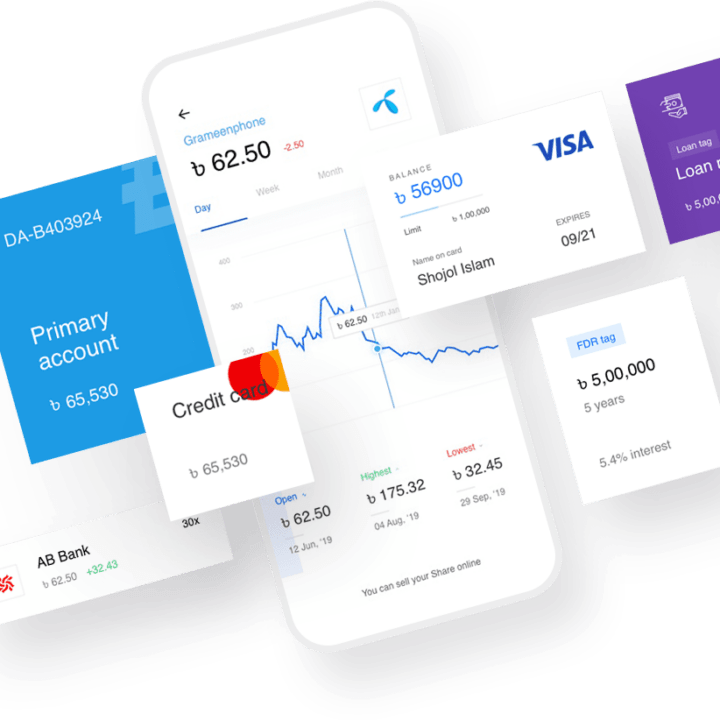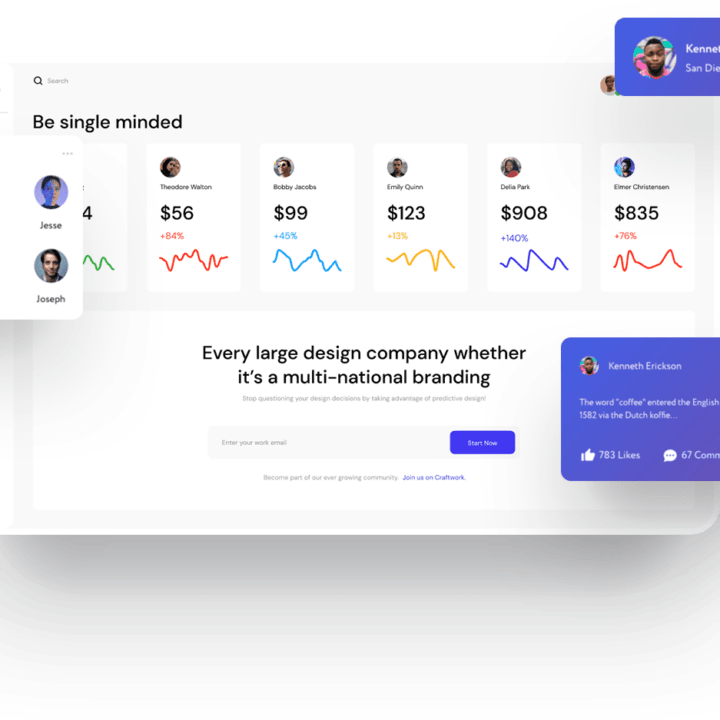Beyond the Build: How to Manage and Grow Your Website After Launch
Congratulations! Your business website is live, looking professional, and ready to serve customers. But if you think the hard work is over, think again. The launch is just the beginning of your website’s journey from a digital brochure to a powerful business growth engine. Studies show that 78% of small business websites fail to generate meaningful results not because they’re poorly built, but because they’re poorly maintained after launch. Your beautiful new website can either become your most valuable marketing asset or an expensive digital paperweight – the difference lies in what you do in the weeks and months following launch. The businesses that understand website management as an ongoing growth strategy see 3x more leads, 40% better search rankings, and significantly higher revenue conversion rates than those who “set it and forget it.” Whether you built your site with the best website builder or invested in custom development, your post-launch strategy determines your online success.
The Post-Launch Reality: Why Most Websites Fail to Deliver
The “Set It and Forget It” Trap
The Common Mistake: Business owners launch their website and assume the work is done. They expect customers to automatically find and engage with their site without ongoing effort.
The Reality Check: Websites require consistent attention, updates, and optimization to generate business results. A website without ongoing management is like a store that never changes its window display or updates its inventory.
The Cost of Neglect: Static websites quickly become invisible to search engines, lose visitor engagement, and fail to convert browsers into buyers. Within 6 months, an unmanaged website performs 60% worse than when it launched.
What Successful Website Management Actually Looks Like
Active Content Management: Regular updates that keep your site fresh, relevant, and valuable to visitors.
Performance Monitoring: Tracking what works, what doesn’t, and making data-driven improvements.
SEO Optimization: Ongoing efforts to improve search engine visibility and attract more qualified visitors.
User Experience Enhancement: Continuously improving how visitors interact with your site to increase conversions.
Security and Maintenance: Keeping your site secure, fast, and technically sound.
Month One: Foundation Building and Quick Wins
Week 1: Analytics Setup and Baseline Measurement
Essential Analytics Implementation Your website builder for small business likely includes built-in analytics, but ensure you’re tracking the right metrics:
Key Performance Indicators to Monitor:
- Unique visitors per week
- Pages per session
- Average session duration
- Bounce rate (percentage who leave immediately)
- Contact form submissions
- Phone calls generated from the website
Google Analytics Integration: Set up Google Analytics if not already configured. This free tool provides detailed insights into visitor behavior, traffic sources, and conversion patterns.
Conversion Goal Setting: Define what constitutes a “conversion” for your business:
- Contact form submissions
- Phone calls
- Email signups
- Online purchases
- Appointment bookings
Week 2: Content Audit and Quick Improvements
Fresh Eyes Review After your site has been live for a week, review it with fresh perspective:
Content Quality Assessment:
- Is your value proposition immediately clear?
- Do service descriptions focus on customer benefits?
- Are contact details prominent on every page?
- Do images load quickly and look professional?
User Experience Testing: Ask friends, family, or customers to navigate your site and provide feedback:
- Can they find your contact information within 10 seconds?
- Is it clear what action they should take next?
- Does the mobile experience feel smooth?
- Are there any confusing or frustrating elements?
Quick Content Wins:
- Add customer testimonials if missing
- Include specific service areas or locations you serve
- Update business hours if they’ve changed
- Add any certifications, licenses, or awards
Week 3: Local SEO Optimization
Google My Business Optimization Your website and Google My Business listing should work together seamlessly:
Profile Completion:
- Ensure all business information matches your website exactly
- Add high-quality photos of your business, products, or services
- Include detailed service descriptions
- Set up regular posting schedule for updates
Review Management:
- Respond to all customer reviews professionally
- Encourage satisfied customers to leave reviews
- Address negative feedback constructively
- Use review insights to improve your services
Local Directory Submissions: Submit your business information to relevant local directories:
- Industry-specific directories
- Local chamber of commerce listings
- Popular review platforms
- Local business associations
Week 4: Social Media Integration and Content Planning
Social Media Connection Connect your website to your social media presence:
Integration Strategies:
- Add social media links to your website footer
- Include social media feeds on your homepage
- Share website content on social platforms
- Use consistent branding across all platforms
Content Calendar Development: Plan ongoing content creation:
- Weekly blog posts or news updates
- Monthly service highlights
- Seasonal promotions or announcements
- Industry insights or tips
Months 2-3: Traffic Building and Engagement
SEO Strategy Implementation
Keyword Research and Content Optimization Build on your foundation with strategic search engine optimization:
Local Keyword Targeting:
- “[Your Service] in [Your City]”
- “[Your Industry] near me”
- “[Specific Service] [Location]”
- “[Problem You Solve] [Geographic Area]”
Content Creation for SEO: Using your website builder’s blogging features, create content that answers customer questions:
- How-to guides related to your services
- Industry tips and insights
- Local community involvement
- Behind-the-scenes business content
Technical SEO Improvements: Most professional website builders handle technical SEO automatically, but verify:
- Page loading speeds are optimized
- Mobile responsiveness is perfect
- Image alt-tags are descriptive
- Page titles and meta descriptions are compelling
Email Marketing Integration
Lead Capture Optimization Transform website visitors into ongoing prospects:
Email Signup Incentives:
- Free consultations or estimates
- Industry reports or guides
- Exclusive promotions or discounts
- Monthly newsletters with valuable tips
Automated Email Sequences: Set up automatic follow-up emails for:
- New contact form submissions
- Newsletter subscribers
- Service inquiries
- Completed projects
Performance Analytics and Optimization
Monthly Performance Review Establish a routine for reviewing and improving website performance:
Traffic Analysis:
- Which pages get the most visitors?
- Where do visitors typically leave your site?
- What search terms bring people to your site?
- Which traffic sources convert best?
Conversion Rate Optimization:
- Test different call-to-action buttons
- Experiment with contact form placement
- Try various headlines and value propositions
- Optimize the mobile user experience
Months 4-6: Advanced Growth Strategies
Content Marketing Mastery
Blog Strategy Development Consistent, valuable content builds authority and attracts customers:
Content Types That Drive Business Results:
- Problem-solving articles that demonstrate expertise
- Local community involvement and news
- Customer success stories and case studies
- Industry trends and insights
- Frequently asked questions
Content Distribution Strategy:
- Publish consistently (weekly or bi-weekly)
- Share content across social media platforms
- Include content in email newsletters
- Repurpose content for different formats
Guest Content Opportunities:
- Write for local business publications
- Contribute to industry websites
- Participate in local community blogs
- Collaborate with complementary businesses
Advanced SEO Tactics
Link Building Strategies Improve your search engine rankings through strategic link building:
Local Link Building:
- Partner with local businesses for cross-promotion
- Sponsor local events or charities
- Join local business associations
- Contribute to community websites
Industry Authority Building:
- Create shareable industry resources
- Develop useful tools or calculators
- Publish research or surveys
- Build relationships with industry publications
Conversion Optimization
A/B Testing Implementation Systematically improve your website’s ability to convert visitors:
Elements to Test:
- Headlines and value propositions
- Call-to-action button colors and text
- Contact form fields and placement
- Service descriptions and pricing presentation
Landing Page Optimization: Create dedicated pages for specific campaigns:
- Seasonal promotions
- Specific service offerings
- Geographic target areas
- Referral sources
Months 7-12: Scaling and Automation
Marketing Automation
Automated Lead Nurturing Use technology to maintain consistent contact with prospects:
Email Automation Sequences:
- Welcome series for new subscribers
- Follow-up sequences for service inquiries
- Seasonal promotion campaigns
- Customer retention communications
Website Behavior Triggers:
- Popup offers for visitors who spend time on specific pages
- Exit-intent offers for departing visitors
- Personalized content based on visitor location
- Retargeting campaigns for return visitors
Advanced Analytics and Reporting
Business Intelligence Dashboard Create comprehensive reporting that connects website performance to business results:
Key Metrics Tracking:
- Lead quality and conversion rates
- Revenue attribution to website sources
- Customer lifetime value from different channels
- Return on investment for marketing efforts
Competitive Analysis:
- Monitor competitor website changes
- Track competitor search rankings
- Analyze competitor content strategies
- Identify market opportunities
Expansion and Enhancement
Feature Additions Based on Growth As your business grows, your website should evolve:
E-commerce Integration: If you’re not selling online yet, consider adding:
- Product catalogs
- Online ordering systems
- Customer account portals
- Subscription or membership features
Advanced Business Tools:
- Online appointment scheduling
- Customer relationship management integration
- Inventory management systems
- Multi-location support
Industry-Specific Post-Launch Strategies
Local Service Businesses
Priority Focus Areas:
- Local search optimization
- Customer review management
- Service area expansion content
- Seasonal service promotion
Monthly Action Items:
- Add new service area pages
- Create seasonal service content
- Collect and showcase customer testimonials
- Monitor local search rankings
Professional Services
Priority Focus Areas:
- Thought leadership content
- Professional credibility building
- Client success stories
- Industry expertise demonstration
Monthly Action Items:
- Publish industry insights or analysis
- Share client success stories (with permission)
- Update professional credentials and achievements
- Participate in industry discussions online
Retail and E-commerce
Priority Focus Areas:
- Product content optimization
- Shopping experience improvement
- Customer retention strategies
- Inventory-based content updates
Monthly Action Items:
- Optimize product descriptions and images
- Analyze and improve conversion funnels
- Implement customer loyalty programs
- Update seasonal product offerings
Restaurants and Food Service
Priority Focus Areas:
- Menu updates and seasonal offerings
- Local food community engagement
- Customer experience optimization
- Photo content refreshing
Monthly Action Items:
- Update menus and pricing
- Share behind-the-scenes content
- Engage with local food bloggers
- Refresh food photography regularly
Common Post-Launch Management Mistakes
Mistake 1: Inconsistent Updates
The Problem: Updating the website sporadically or only when major changes occur.
The Solution: Establish a regular update schedule, even if it’s just monthly minor updates. Search engines and visitors both prefer fresh, current content.
Mistake 2: Ignoring Mobile Performance
The Problem: Focusing only on desktop experience while mobile users struggle with slow loading or poor navigation.
The Solution: Test mobile performance monthly using your website builder’s mobile preview tools and prioritize mobile user experience.
Mistake 3: Neglecting Security Updates
The Problem: Assuming your website is secure without regular maintenance and updates.
The Solution: Choose a reliable website builder that handles security automatically, and monitor for any security alerts or issues.
Mistake 4: Content Without Strategy
The Problem: Adding content randomly without considering what customers actually want or need.
The Solution: Base content decisions on customer questions, search data, and business goals rather than random inspiration.
Tools and Resources for Ongoing Success
Essential Management Tools
Analytics and Monitoring:
- Google Analytics for traffic analysis
- Google Search Console for search performance
- Google My Business for local presence
- Social media analytics for engagement tracking
Content Management:
- Editorial calendar tools for content planning
- Image optimization tools for faster loading
- Social media scheduling tools
- Email marketing platforms
SEO and Optimization:
- Keyword research tools
- Local SEO tracking tools
- Website speed testing tools
- Mobile responsiveness checkers
Why Pixel Cloud Media Simplifies Long-Term Management
Built-in Management Features: Pixel Cloud Media’s website builder includes tools specifically designed for ongoing website management:
- Automatic security updates and backups
- Built-in SEO optimization tools
- Mobile-responsive design maintenance
- Performance monitoring and optimization
- Easy content management system
- Integration with marketing tools
Ongoing Support Benefits: Unlike custom websites that require developer maintenance contracts, professional website builders provide:
- 24/7 technical support
- Regular feature updates
- Security monitoring
- Performance optimization
- Mobile compatibility maintenance
Creating Your Post-Launch Management Plan
Weekly Management Routine (30 minutes)
Analytics Review:
- Check visitor numbers and traffic sources
- Review contact form submissions
- Monitor search ranking changes
- Assess social media engagement
Content Updates:
- Add any new business information
- Update special offers or promotions
- Respond to customer reviews
- Share recent business news
Monthly Optimization Session (2 hours)
Performance Analysis:
- Detailed analytics review
- Conversion rate analysis
- Speed and mobile testing
- Competitive research
Content Strategy:
- Plan next month’s content
- Update existing content for accuracy
- Add new customer testimonials
- Optimize underperforming pages
Quarterly Strategic Review (4 hours)
Business Alignment:
- Assess if website reflects current business goals
- Review and update service offerings
- Analyze customer feedback and implement improvements
- Plan major updates or additions
Growth Planning:
- Identify expansion opportunities
- Plan new feature implementations
- Set goals for next quarter
- Budget for website enhancements
Measuring Long-Term Success
Key Performance Indicators
Traffic Growth Metrics:
- Month-over-month visitor increases
- Improved search engine rankings
- Increased direct traffic (brand searches)
- Better traffic source diversification
Business Impact Metrics:
- Increased lead generation
- Higher conversion rates
- Better lead quality
- Revenue attribution to website
Engagement Metrics:
- Longer session durations
- Lower bounce rates
- Increased page views per session
- Growing email subscriber list
Setting Realistic Growth Expectations
Month 1-3 Goals:
- Establish baseline metrics
- Implement basic optimization
- Begin seeing small traffic increases
- Start generating consistent leads
Month 4-6 Goals:
- 25-50% increase in organic traffic
- Improved local search visibility
- Higher conversion rates
- Growing email subscriber base
Month 7-12 Goals:
- 100%+ increase in website-generated leads
- First-page rankings for target keywords
- Established thought leadership position
- Measurable revenue impact
Your Website’s Growth Journey Continues
The Compounding Effect of Consistent Management
Just as compound interest grows wealth over time, consistent website management creates exponential business growth. Each month of optimization, content creation, and performance improvement builds on the previous month’s efforts.
The 12-Month Transformation: Businesses that commit to ongoing website management typically see:
- 200-400% increase in website-generated leads
- 3x improvement in search engine visibility
- 50-100% better conversion rates
- Significant brand recognition growth
Why Professional Website Management Matters
The DIY vs. Professional Balance: While modern website builders make basic management accessible, the most successful businesses combine DIY control with professional guidance and tools.
Strategic Advantage: Businesses using comprehensive website builder platforms have built-in advantages:
- Automatic technical maintenance
- Professional design updates
- Security and performance optimization
- Access to advanced marketing tools
Your Post-Launch Success Strategy
The Critical First 90 Days
Your website’s first three months determine its long-term success trajectory. Businesses that actively manage and optimize during this period see 5x better results than those who launch and forget.
Your 90-Day Action Plan:
- Week 1-4: Foundation building and quick wins
- Month 2: Traffic building and engagement strategies
- Month 3: Conversion optimization and growth acceleration
The Support You Need: Pixel Cloud Media’s website builder provides the tools, support, and guidance necessary for post-launch success without requiring technical expertise or ongoing developer costs.
From Website Owner to Digital Marketing Success
Managing your website effectively transforms you from someone who “has a website” to someone who leverages digital marketing for business growth. This transformation creates competitive advantages that extend far beyond your website.
Skills You’ll Develop:
- Data-driven decision making
- Customer behavior understanding
- Digital marketing expertise
- Content creation abilities
- SEO and optimization knowledge
Business Benefits:
- Reduced marketing costs
- Improved customer acquisition
- Better customer insights
- Enhanced competitive positioning
- Scalable growth strategies
Ready to Transform Your Website Into a Growth Engine?
Your website launch was just the beginning. The real opportunity lies in what you do next. While your competitors let their websites stagnate, you can build a dynamic, growing online presence that continuously attracts and converts customers.
Pixel Cloud Media’s website builder provides everything you need for successful long-term website management:
- Built-in analytics and optimization tools
- Automatic technical maintenance
- Professional support when you need it
- Growth-focused features and integrations
- User-friendly management interface
Your growth journey starts with the right foundation: Discover how Pixel Cloud Media supports your post-launch success.
Don’t let your website become another static online brochure. Transform it into the powerful business growth tool it was meant to be.





